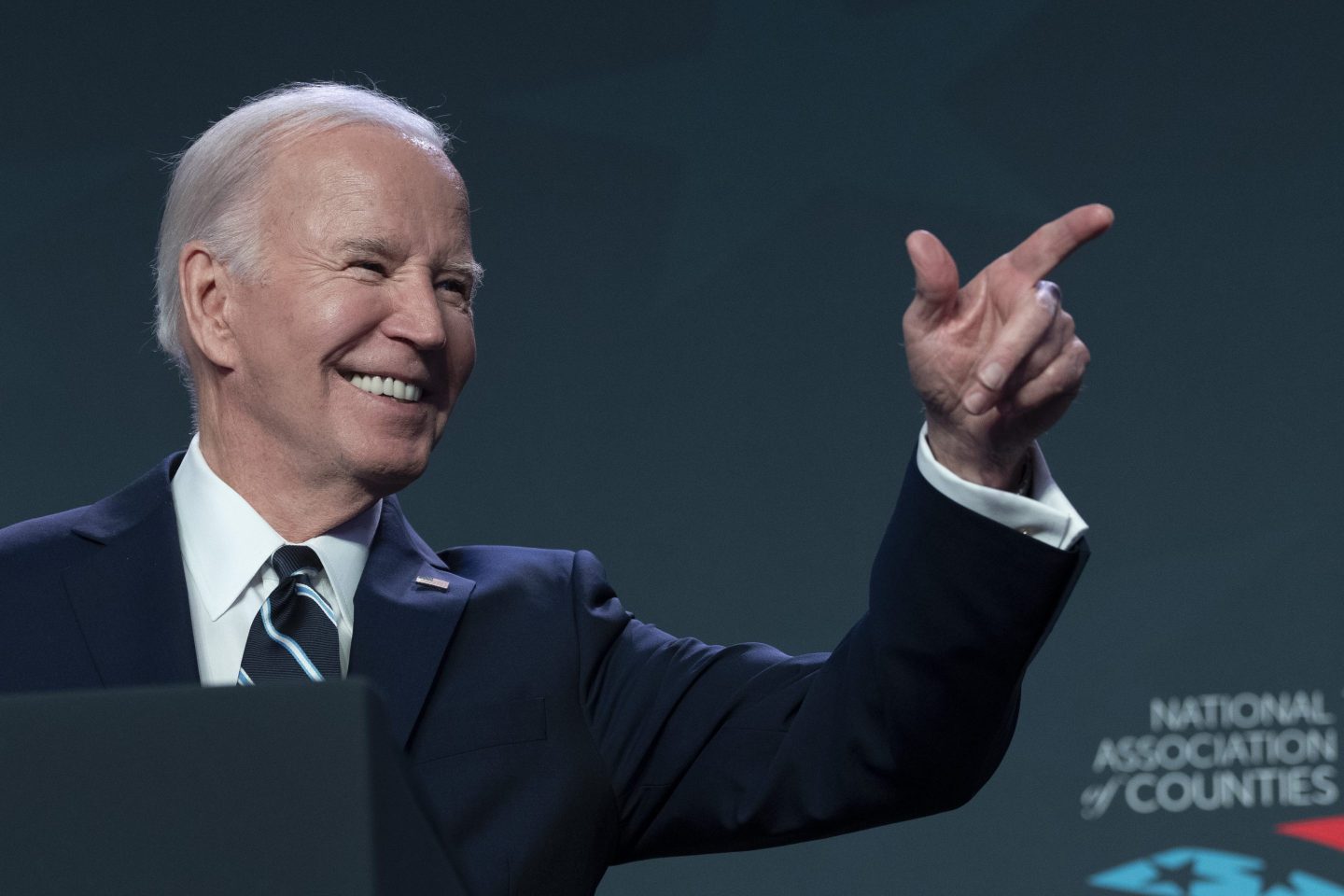President Joe Biden doesn’t want you to have to spend so much money on groceries.
In a message released on social media before the Super Bowl Sunday, Biden called on major food manufacturers to curb the ongoing trend of shrinkflation.
“Some companies are trying to pull a fast one by shrinking the products little by little and hoping you won’t notice,” Biden said. “Give me a break. The American public is tired of being played for suckers.”
Shrinkflation occurs when manufacturers reduce the size of their packaging but keep the price the same. It’s a way to charge consumers the same for less merchandise.
Consumers really started to notice shrinkflation in 2022 when inflation was its peak, according to a poll from Morning Consult. It hit the snack category especially hard, making it that much more noticeable for an event like the Super Bowl. A bag of Doritos shrank from 9.75 ounces to 9.25 ounces, and a “family size” box of General Mills cereals like Cocoa Puffs and Cinnamon Toast Crunch is now 18.1 ounces instead of 19.3 ounces.
Biden, who sat flanked by brands like Oreos, Doritos, Wheat Thins, and Breyers ice cream, was unequivocal in what he thought about the practice.
“It’s a rip-off,” Biden said.
This isn’t the first time Biden has addressed shrinkflation. Nor is it the first time he’s sought to cast companies as the culprits. At a campaign event a few weeks ago, Biden took aim at grocery chains and major food brands, accusing them of keeping prices high intentionally.
“For all we’ve done to bring prices down, there are still too many corporations in America ripping people off: price gouging, junk fees, greedflation, shrinkflation,” Biden said in January at South Carolina’s First in the Nation dinner.
He reiterated that theme during his pre–Super Bowl message as well. “I’m calling on companies to put a stop to this,” Biden said. “Let’s make sure businesses do the right thing—now.”
There is some evidence that much of the price hikes for food and other consumer goods could have been avoided. Pennsylvania Sen. Bob Casey released a report on shrinkflation in December that attributed 41% of inflation’s cost increases to “corporate profit making.” Corporations, especially those that make household staples like snacks and home goods, have also been accused of raising prices for consumers at a rate that far exceeds any cost increases they themselves may have incurred from their suppliers. One estimate found that if corporations hadn’t done so, overall inflation would have been “one to three points lower.”
Prices for essential, daily items at grocery stores remain high despite the recent declines in inflation, which is hovering at a three-year low. Many of the prices for grocery staples like eggs, bread, and packaged foods rose sharply in 2021 and 2022 when inflation was at its peak. Since then, despite not climbing as quickly, prices still haven’t come down, which means shoppers are still stuck with high grocery costs.
Even some retailers got fed up with the habit. In France, grocery chain Carrefour started putting up signs in its stores warning shoppers that a product had been subject to shrinkflation.
Given that people buy these items much more frequently than they do big-ticket items, it can feel inflation is still high even when it’s come down. Two-thirds of Americans say food prices are where inflation has hit them the hardest, according to a November poll from Yahoo Finance/Ipsos. As of December, though, food prices have finally stopped rising faster than overall inflation.
So far, Biden and his administration have struggled to convince voters that the economy is improving, which will be a key topic during his reelection campaign. Often the economy can play a deciding factor in a presidential election, and the cost of essential goods often gets used as a proxy for its relative health. An NBC poll from earlier this month found Biden had a 20-point gap compared to former President Donald Trump on which candidate would handle the economy better. Worryingly for Biden, 55% of voters believe his own policies have hurt the economy. Even Democratic voters struggle to see a robust economy, despite signs that things are improving for the country.
The economy has, in fact, improved under Biden’s watch. However, it remains difficult for the president to convince Americans that’s been the case—in large part because they are still unsure if the positive momentum will continue, meaning they fear a possible downturn. And because of increased political polarization, voters are unwilling to credit a president from a different political party with improving the economy.
While grocery prices may remain higher than consumers would have liked, the Federal Reserve hinted that the worst of inflation may be behind the country.













